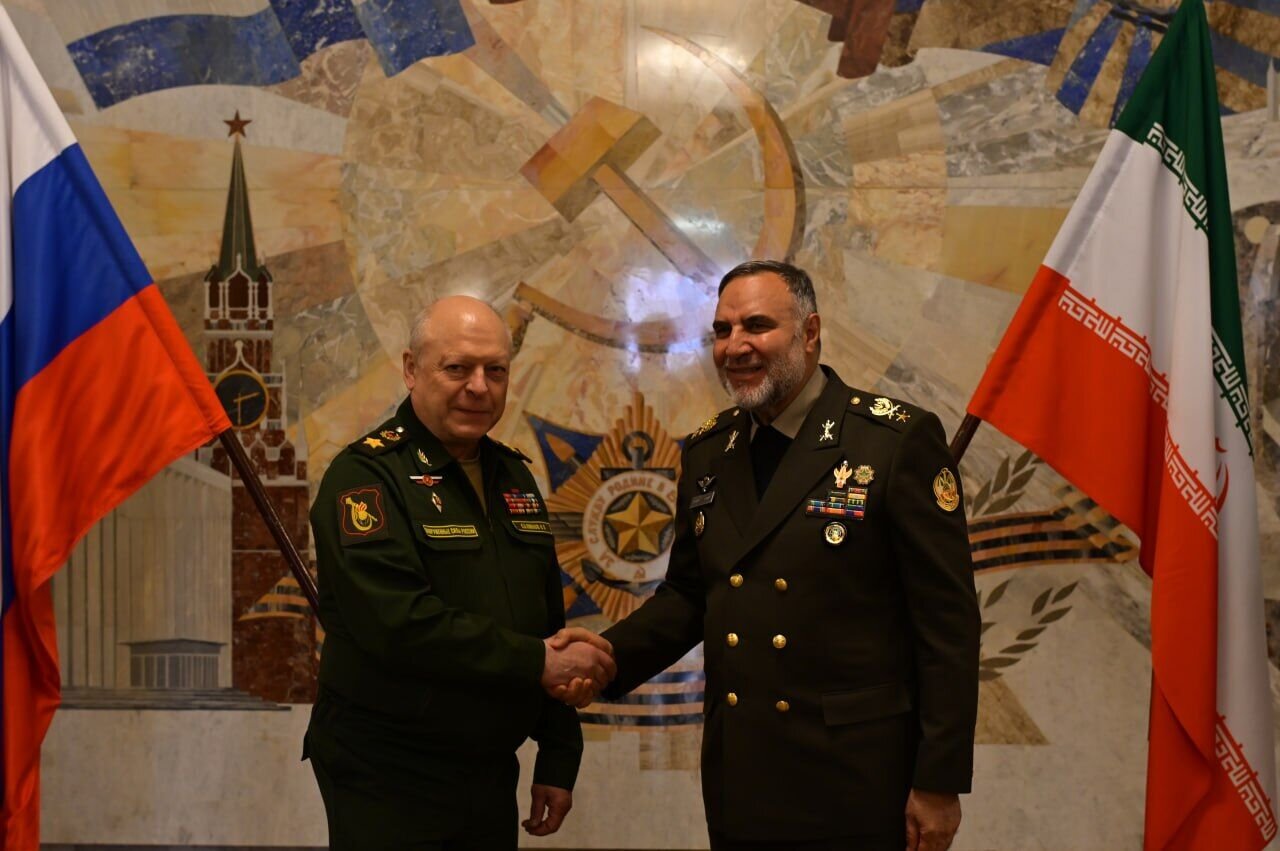Russian, and Iranian generals examine ways to deepen military ties

TEHRAN - Brigadier General Kiomars Heidari, commander of the Iranian Army’s ground forces, and General Oleg Salyukov, head of the Russian Army’s ground forces, exchanged views on enhancing military cooperation.
Heidari visited Moscow on Sunday at the head of a military delegation to examine ground forces cooperation between Iran and Russia.
At the meeting, General Heidari stated that his unit is prepared to increase military cooperation with Russia.
For his part, the Russian general stated that Iran is one of the main nations in West Asia and a “strategic” ally of Moscow.
Russia and Iran are now engaged in extensive political negotiations aimed at fostering better ties, Salyukov pointed out.
The two commanders talked about military collaboration for the purpose of putting plans into effect that are meant to bolster the combat preparedness of the Russian and Iranian armed forces.
Heidari and Salyukov decided to keep fostering cooperation between the two nations’ ground troops in a variety of areas.
Salyukov and the Iranian commander paid a visit to the tomb of the unknown soldier in the Alexander Garden of the Kremlin Wall before the meeting and left a wreath in their honor.
Heidari also has plans to see a number of military-industrial complexes and training facilities in Moscow.
At Russia’s Army-2023 International Military-Technical Forum in Patriot Park close to Moscow, Iran displayed its homegrown Ababil ballistic missile for the first time along with a variety of other cutting-edge military hardware, including drones and electronic warfare systems.
In the Russian exhibition, Iran debuted a copy of its tactical Sayayd air defense system for the first time.
The Iranian Armed Forces are now completely self-sufficient in the field of defense thanks to the significant advancements made in recent years by military specialists and technicians in the development of a wide variety of military hardware.
Iran has repeatedly reaffirmed that its defense and military relations with Russia are in the framework of the two governments’ shared interests and are not directed against any third party.
On August 29, the Defense Ministry presented a brand-new, cutting-edge combat drone called Ababil (Flock of Birds) that is able to hit targets with accuracy.
The new drone was unveiled during a Defense Ministry show that was attended by Parliament Speaker Mohammad Baqer Qalibaf.
The most recent unmanned aircraft can carry cruise missiles with extremely high destructive capacity.
The aircraft is equipped with a warhead that can detect targets as well as an optical seeker. Additionally, it has the ability to acquire and transmit real-time photographs of the targets, latch on terrestrial targets, and precisely strike them.
More than 150 new sophisticated drones and various units participated in the recent large-scale drone war games that the Iranian Army conducted around the country. Four Army components, including the Ground Force, Navy, Air Force, and Air Defense Force, participated in the military drills.
Major General Abdolrahim Mousavi, commander of the Army, praised the accomplishments in creating various kinds of unmanned aerial vehicles (UAVs) and asserted that recent drone drills that spanned the whole nation's area carried a clear message.
The senior commander said the Iranian people are happy to have their armed forces on their side.
The drills, Mousavi continued, are the biggest ever held by the four branches of the Army on the Iranian territory as well as in the Persian Gulf and the Sea of Oman.
"Iran used all of its drone and electronic warfare assets in the drills,” the senior officer stated.
General Mousavi went on to say that the allies of Iran are inspired by the Islamic Republic's will to advance despite animosities and vile actions committed by its enemies.
Iran has made considerable strides in building surveillance and war drones in recent years. According to military authorities, Iran is capable of producing drones on its own, including their fuselage, numerous subsystems, and engines. The Armed Forces are prepared and equipped to perform any kind of drone operations.
In late May, Iran displayed an underground drone station where a variety of cutting-edge drones are kept for possible conflicts and other operations.
Major General Mohammad Bagheri, the Chief of Staff of the Iranian Armed Forces, stressed during his visit to the site that the pilotless aircraft had improved Iran's deterrence capability.
Emphasizing the role drones play in protecting the nation's interests, he said they have a specific position in a variety of offensive, defensive, land, sea, air, and air defense situations.
"The drones that we observed today can play such a role," General Bagheri stated, noting that deterrence is not achievable with outdated techniques and tools and necessitates modern techniques.
Iran's military capabilities, especially its drone and missile capacity, which are only intended for defense, will never be negotiable, according to Iranian authorities, who have emphasized this point time and again.
Leave a Comment